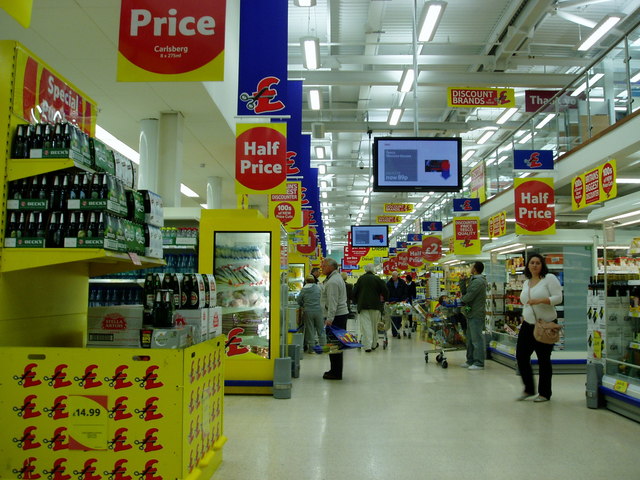
The latest data from the Office for National Statistics (ONS) reveals a 0.4% monthly decrease in prices for food and non-alcoholic beverages, marking the first drop
since September 2021.
The decline is attributed in part to reductions in the prices of items such as bread, cereals, cream crackers, sponge cakes, and chocolate biscuits. Additionally, costs for crisps, cooking sauces, and instant coffee have also eased.
Although food prices remain relatively high, significant increases have been observed over the past two years. Factors contributing to price spikes include Russia's invasion of Ukraine, which impacted energy prices and grain supplies, adverse weather conditions in Europe and North Africa, and labor shortages in the UK affecting crop yields.
The largest downward pressure on inflation in January stemmed from furniture and household goods, as retailers offered substantial discounts to clear inventory following lackluster pre-Christmas sales. Conversely, the largest upward contribution came from housing and household services, reflecting higher gas and electricity charges implemented since January.
Furthermore, the price of second-hand cars increased by 1.5% between December 2023 and January, marking the first rise since May of the previous year.
Grant Fitzner, chief economist at the ONS, described the latest data as a mixed bag, noting that it resulted in no change to the headline rate of inflation.
Chancellor Jeremy Hunt emphasized that while inflation does not decline linearly, the government's plan is effective. He highlighted significant progress in reducing inflation from its peak of 11%.
Despite Wednesday's figures surpassing economists' expectations, inflation remains well above the Bank of England's target of 2%. Consequently, the Bank has raised interest rates to 5.25% in an attempt to curb inflationary pressures.
Gareth Jones, owner of Singleton Jones delicatessen in Warrington Market, shared the challenges posed by price increases, stating that rising costs from suppliers have put him in a difficult position. He emphasized the impact on customers' shopping habits, particularly for those with limited budgets facing the burden of high living costs.
Looking ahead, Myron Johnson, senior personal finance analyst at Interactive Investor, expressed optimism for the coming months, noting that wage growth now outpaces inflation for many individuals. However, he acknowledged that elevated costs continue to weigh heavily on some workers.
Shadow chancellor Rachel Reeves underscored the ongoing struggle with the cost of living, criticizing the Conservatives and advocating for Labour's long-term plan to address economic challenges and alleviate financial burdens for families. Photo by J Taylor, Wikimedia commons.



































